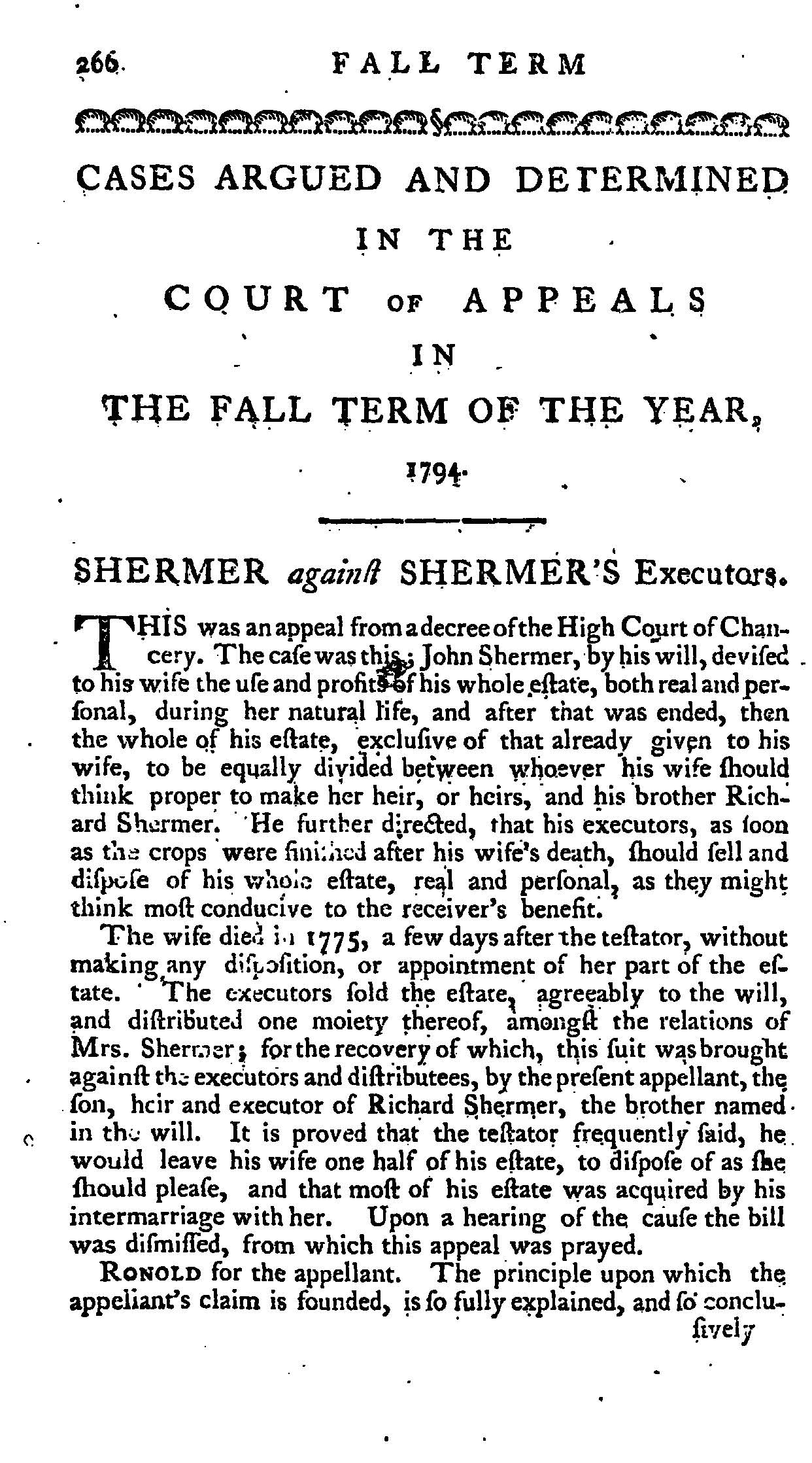Shermer v. Shermer

Shermer v. Shermer, 1 Va. (1 Wash.) 266 (1794),[1] was a case where the court determined a plaintiff's stake in an estate based on the testator's will.
Background
In his final will and testament, John Shermer devised the use and profits of his entire estate to his wife during her lifetime. He also provided that excluding the use and profits, his entire estate should be equally divided between whom his wife chooses and his brother, Robert Shermer. A final provision stated that at his wife’s death, John’s land and property should be sold as they find conducive. John Shermer’s wife died only a few days after his death without a will. The executors of John’s estate sold the estate and gave a portion to the wife’s relatives. The son of Richard Shermer, John Shermer’s nephew, sued in the High Court of Chancery to obtain his father’s portion of the estate as well.
The Court's Decision
Chancellor Wythe dismissed the case. The Court of Appeals affirmed.
See also
References
- ↑ Bushrod Washington, Reports of Cases Argued and Determined in the Court of Appeals of Virginia (Richmond, VA: T. Nicolson, 1798), 1:266.